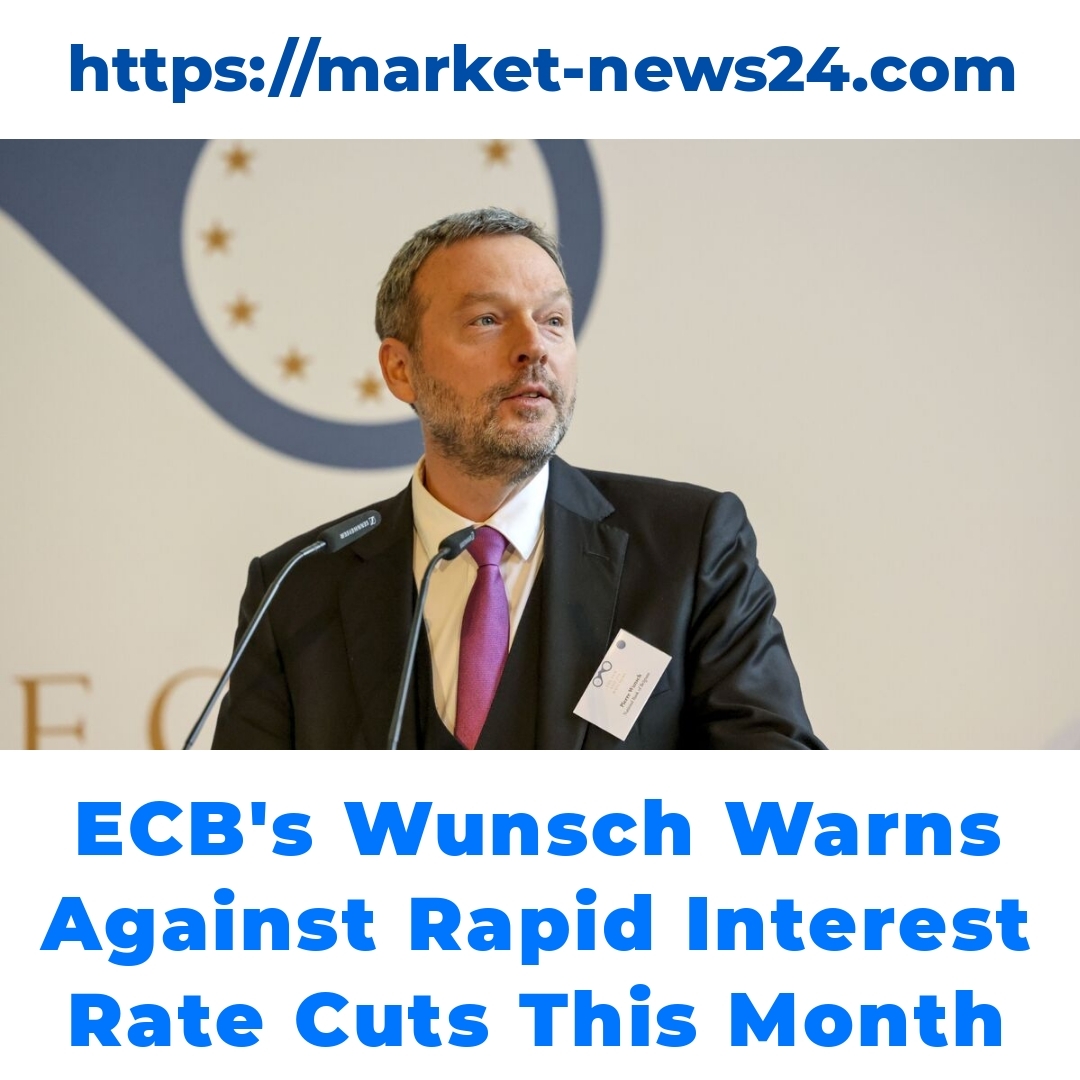Interest rates play a crucial role in shaping economic stability within the Eurozone, particularly as the European Central Bank (ECB) considers its next moves. In this context, Pierre Wunsch, a key member of the ECB’s Governing Council, emphasizes caution regarding potential interest rate cuts, highlighting the importance of a balanced approach in navigating today’s economic challenges.


Interest rates are a hot topic these days, especially when we think about the role of the European Central Bank (ECB) in shaping Europe’s economic landscape. Pierre Wunsch, a prominent member of the ECB’s Governing Council, has recently shared his thoughts on the matter, and they definitely warrant our attention.
So who exactly is Pierre Wunsch? He’s not just any figure at the ECB; he has a solid background in economics and finance, having held various positions that influence monetary policy. As a member of the Governing Council, his voice carries weight in decisions about interest rates and their implications for the Eurozone’s economy. Wunsch’s experience gives him a unique perspective on the effects of interest rate changes, especially in today’s economic climate. Recently, he’s been vocal about the need for caution regarding interest rate cuts.
Now, let’s talk a bit about where we stand with interest rates in the Eurozone. Currently, the ECB has set a benchmark interest rate that reflects attempts to manage inflation and stimulate growth. Recent economic indicators, like inflation rates and employment data, contribute to the ongoing discussions about whether these rates should change. Interest rates significantly impact economic policies and conditions, as they determine borrowing costs for businesses and consumers alike.
When it comes to interest rate cuts, Pierre Wunsch has been clear about his cautious stance. He warns against slashing rates too quickly, expressing concern that rapid changes could have negative long-term effects on the economy. Wunsch has emphasized that while there may be pressure to cut rates, especially given certain economic signals, a hasty decision could lead to instability. He believes a more measured approach is essential as we navigate these uncertain waters. This brings us to a crucial point: his caution against lowering interest rates too quickly is rooted in a desire to maintain economic stability.
The potential implications of changing interest rates are vast. Decisions made by the ECB have a ripple effect on the overall economic policy in Europe. Balancing the need for lower rates to stimulate growth with the necessity of ensuring economic stability is no small feat. Investors and markets watch these moves closely, adjusting their expectations based on the ECB’s actions. So when Pierre Wunsch speaks up, people listen because his insights could influence market behavior and economic forecasts.
Looking ahead, what might the future hold for interest rates in the Eurozone? Based on Pierre Wunsch’s statements, there seems to be a more cautious outlook on significant rate cuts in upcoming ECB meetings. While some might hope for quick reductions, Wunsch’s emphasis on thoughtful considerations suggests that the ECB will proceed with caution. It’s clear that stakeholders across the economy are keenly interested in the “European Central Bank interest rate outlook” and its implications for their own operations and investments.
In conclusion, Pierre Wunsch’s insights into interest rates underscore the vital role these rates play in the broader economic landscape of Europe. His caution against hasty cuts reminds us of the delicate balance the ECB must maintain in fostering growth while ensuring stability. As we navigate through these complex monetary policy discussions, it’s essential to keep in mind the far-reaching effects of interest rates on not just the economy, but our daily lives. The conversations happening now will undoubtedly shape the future of economic policy in the Eurozone, making it crucial for all of us to stay informed on these developments.
Frequently Asked Questions
Who is Pierre Wunsch?
Pierre Wunsch is a prominent member of the European Central Bank’s (ECB) Governing Council. With a strong background in economics and finance, he plays a crucial role in shaping monetary policy decisions in the Eurozone.
What is the current situation with interest rates in the Eurozone?
The ECB has set a benchmark interest rate aimed at managing inflation and fostering economic growth. The current economic indicators, such as inflation rates and employment data, influence discussions on whether these rates should be adjusted.
What is Pierre Wunsch’s stance on interest rate cuts?
Wunsch advocates for caution regarding interest rate cuts. He believes that lowering rates too quickly could destabilize the economy and advocates for a more measured approach to ensure long-term economic stability.
Why are interest rates important?
Interest rates significantly impact borrowing costs for businesses and consumers, influencing overall economic policies and conditions. Changes in interest rates can ripple through the economy, affecting investment and spending.
What implications do ECB decisions have on the economy?
- Market behavior and investor expectations are closely tied to ECB actions regarding interest rates.
- Decisions made by the ECB can affect economic stability and growth in the Eurozone.
What might the future hold for interest rates according to Wunsch?
Wunsch’s cautious outlook suggests that significant interest rate cuts may not occur in the upcoming ECB meetings. He emphasizes careful consideration in decision-making to maintain economic stability.





